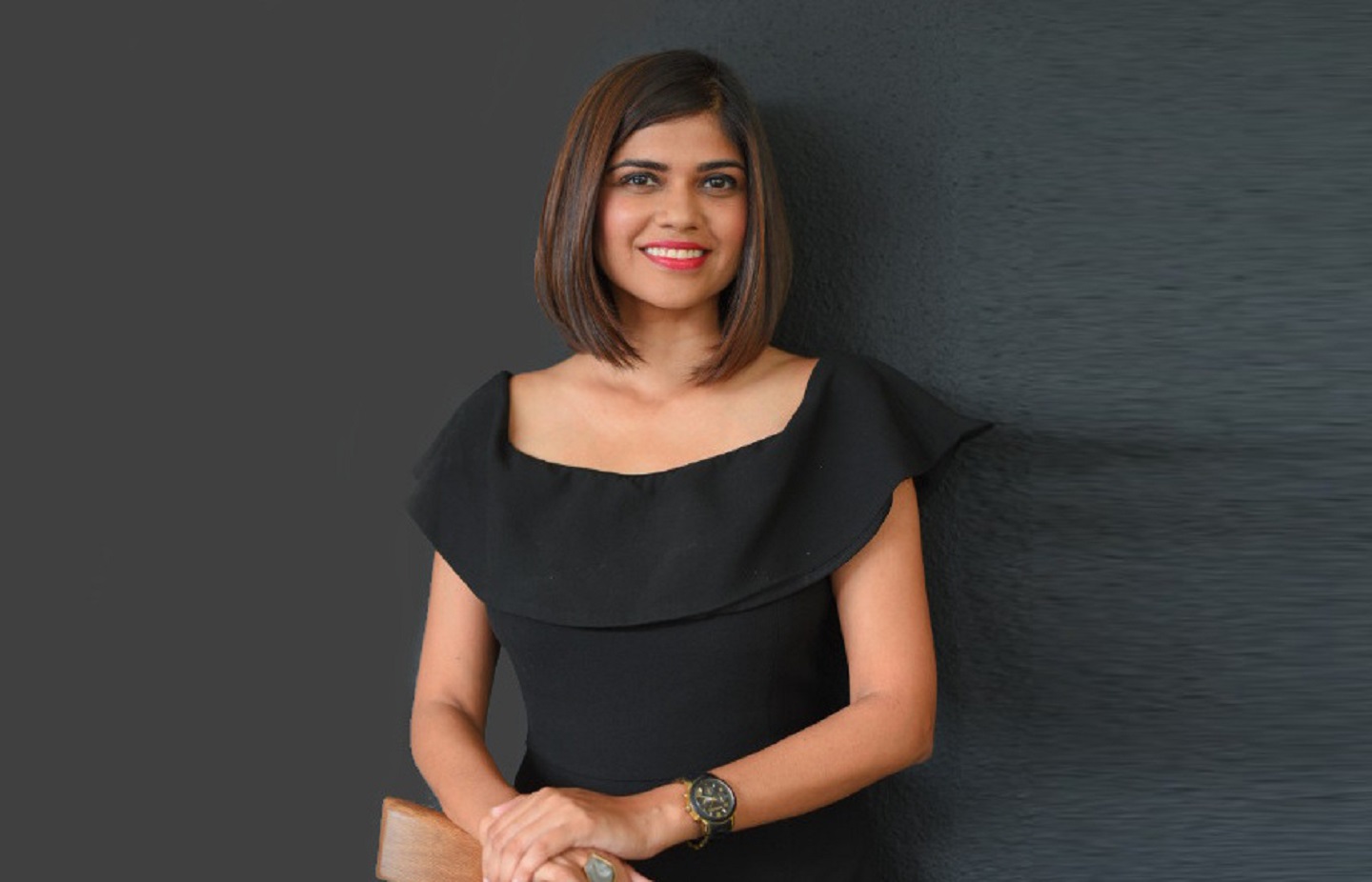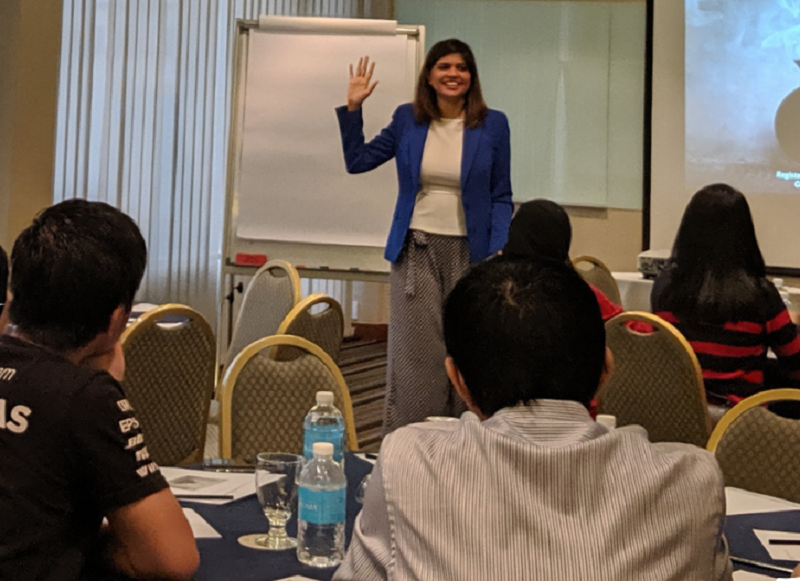
Founder of O Psych Hetal Doshi (All photos: O Psych)
O Psych seeks to increase the success rates of transforming organisations by including a psychological approach prior and during transformation journeys. Hetal Hoshi, who has facilitated over 400 workshops on various leadership topics, shares her tips on coping with the new normal.
Options: What tips can you share to reduce anxiety as we begin venturing out again?
Hetal Doshi: Anxiety is essentially fear-based simulations in the mind about the unknown. So, create fear-setting exercises to explicitly determine the fear you have and utilise the simulations in your mind to consider all the possibilities to increase the chances of success based on all the possibilities of failures you have come up with. Such simulations should typically be drawn out on paper as our 60,000 thoughts per day can haunt us like invisible mental ghosts if they stay there. Instead, put them down on pen and paper to become clear plans of action.
So how can one best prepare to face the day or week ahead?
Before one can have a wonderful day or week, it is crucial to consider what type of life you would like to lead and work backwards into a week, and then into a day. There are five very basic things one should also bear in mind: Create a morning ritual for yourself; set clear goals and boundaries; practise the magic ratio of 5:1, which is to say and do five positive or constructive things before you suggest anything negative; be kind to your body; and live the day with a curious, experimental and learning mindset.
How can leaders use organisational psychology then to help their teams in these uncertain times?
There are several things leaders can do to increase ‘normalcy’, well-being and performance. However, organisations have yet to deeply understand human psychology and the tactics needed to ensure high levels of well-being while ensuring high levels of performance, especially during challenging and transformative times. For example, is it more important that everyone comes back to the office or are well-being and performance a priority? We call this ‘keeping one’s eyes on the real prize’. You can also design and co-create evidence-based tactical solutions to increase the possibilities of this happening as well as increase and allow opportunities to have safe, open and inclusive conversations about how to make this happen. Continuing to ask for feedback about everyone’s experiences also creates further progress.
o_psych.png

The past year-plus has been far from easy. What can you tell people who’ve suffered or experienced loss?
You are a miracle. You are still here ... trying, figuring and hoping. Allow each of your body’s 30 trillion cells to heal and find a way again towards your dreams. Allow people into your life to help and support you. Allow love and laughter to fill your heart again. Do also attempt to read books on grief and loss, chat with friends with whom you truly connect or turn to a professional for a more structured path to healing.
What has the pandemic taught you, from a personal as well as professional standpoint?
It taught me to have a laugh at myself if ever I think I’m in control again. But I also recognise that there are billions of opportunities even, and especially, in the toughest of circumstances. I’ve picked up skills I was never good at, like cooking, painting and technology. I have also built up [more] relationships with my neighbours in the past two years than I have in the past decade. Viktor Frankl, a Holocaust survivor, was spot on in his memoir, Man’s Search for Meaning, when he said: “They can take anything away from you, but the last of all human freedoms is to choose your attitude in any given circumstance”.
Was it always your ambition to be an organisational psychologist? And what do you think of where you are right now?
There were dreams of being a nurse, an air stewardess ... even Oprah Winfrey! It turns out I was lucky enough to do what I am doing today as it allows me to speak and listen to others for a living, just like Oprah. I also travel across countries for my clients like an air stewardess and focus on healing and helping — like a nurse. Looking retrospectively at all the twists and turns in my life, I continue to feel extremely grateful for my family who has always been there for me, my friends who consistently add spice to my life, my clients who continue to trust me and my body for keeping healthy. It is this gratitude that serves as a reminder for me to utilise as much of my time in service of others.
What are you reading right now?
I’ve just finished Zen and the Art of Motorcycle Maintenance by Robert Pirsig, Morgan Housel’s The Psychology of Money, and High Conflict by Amanda Ripley and truly loved all three. A recurring theme across the books was the idea that one can always achieve something — a physical possession, a relationship, a goal, a promotion or even a specific weight — but to maintain it is a whole different ball game that requires a unique mindset and skill set.
What music immediately puts you at ease?
The sound of the pool and garden of my condo at 6am. Nothing beats the serenity of nature — water and birds chirping — at that time of day.
This article first appeared on Oct 4, 2021 in The Edge Malaysia.


